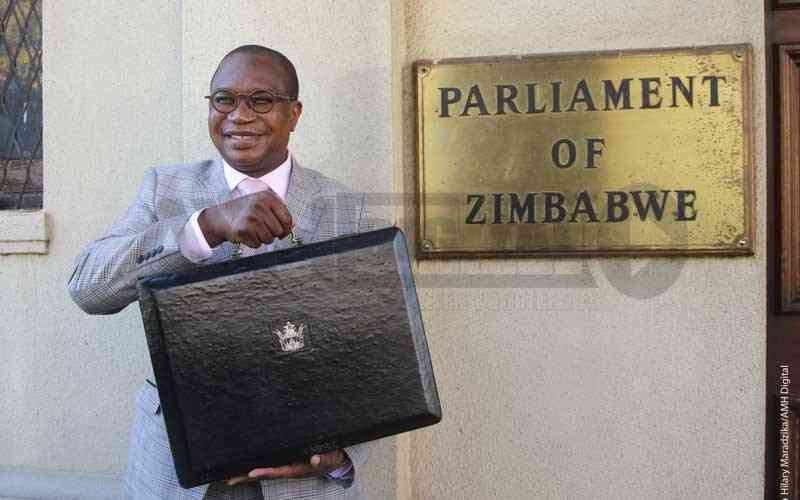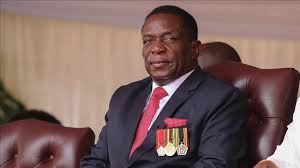
AS the national budget announcement draws near, my focus this week is on what Finance and Investment Promotion minister Mthuli Ncube has to priotise to boost economic growth in Zimbabwe.
My last two instalments on the upcoming national budget announcement were on poor public service delivery and the high tax burden that is suffocating business and ordinary Zimbabweans.
The appeal in the two were to Ncube to announce pro-poor budget, where the government priotises healthcare, education and provision of clean water to the country’s over 15 million population. It was also to lessen the tax burden on business and individuals.
Ncube’s task at hand, in a country grappling with high inflation, power cuts, currency volatilities, high unemployment rate and a depreciating local currency, is both challenging and vital.
In addition, Zimbabwe is beset by a myriad of challenges, including widespread poverty, political tensions, and corruption.
Ncube has to present an economic blueprint that promotes economic development, job creation, foreign direct investment, and social development.
Zimbabweans are looking for hope from the new administration, which is serving its second five-year term, after President Emmerson Mnangagwa won the tightly contested August election.
So Ncube is under pressure to alleviate poverty and announce policies that will propel the country forward. The task is even more daunting, as the country is facing an El Nino-induced drought.
- Budget dampens workers’ hopes
- Govt issues $24 billion Covid-19 guarantees
- Letter to my People:They have no answers for Nero’s charisma
- ZMX to enhance farm profitability
Keep Reading
The budget should include provisions for social safety nets to protect vulnerable groups, such as the elderly and children, from poverty and food insecurity.
With a high unemployment rate among the youth, who are battling depression and substance abuse, Ncube really needs to come up with programmes that target youth employment, including apprenticeships, internships, and entrepreneurship opportunities.
The government needs to engage the youth, which currently feels hopeless and helpless. He needs to announce a budget that gives them hope.
One way is skills development. More investment must be put into vocational training and educational programmes that align with industry needs, which can empower and address unemployment.
It is estimated that between 80 to 90% of Zimbabweans are engaged in informal economic activities. The informal sector accounts for 40% of the country’s gross domestic product, which makes it a key player.
So how can Ncube ensure that government supports the informal sector, small and medium-sized enterprises? This can be through affordable loans.
The rural folk, despite voting in their huge numbers at each general election have always been disenfranchised. The least that Ncube can do in this 2024 budget is to show gratitude to the rural voters.
He needs to ensure that rural areas benefit from economic development initiatives. The government must invest in rural infrastructure, education, and healthcare to improve living conditions and bridge urban-rural disparities.
Another critical area that the budget should prioritise is infrastructure development.
This includes improved roads, energy, and telecommunications infrastructure, as these are vital to facilitate trade and attract foreign investment.
Business has been reeling from 18-hour blackouts. Investment and promotion of renewable energy sources such as solar and gas should be a top priority in the 2024 national budget to reduce electricity shortages and attract investors in this rapidly growing sector.
On industrialisation, it must provide incentives for industries, which include tax breaks and streamlined regulations that improve ease of doing business.
An investment-friendly environment is critical. Policies and regulations should be made more transparent, consistent, and investor-friendly.
Well-targeted tax incentives can encourage foreign businesses to invest in Zimbabwe.
On debt, the budget should include a clear strategy for debt reduction and responsible borrowing.
Maintaining fiscal discipline is critical. Ncube must address budget deficits through responsible fiscal measures.
One low hanging fruit is promoting tourism. The country is blessed with rich cultural heritage and natural beauty. The budget should allocate resources for tourism development, including marketing, preservation of heritage sites, and infrastructure improvement in key tourist areas.
With the world focus on climate change effects, Ncube needs to spell out conservation and green Initiatives. It can be by providing incentives that encourage eco-friendly practices and conservation.
This can have long-term economic and ecological benefits.
Corruption is a deterrent to foreign direct investment. Ncube needs to strengthen anti-corruption efforts in order to build trust in the government and attract investors.
Ncube truly has a difficult task on his hands to heal the ailing economy, create jobs, reduce poverty levels and more importantly give hope to the nation and the youth.






